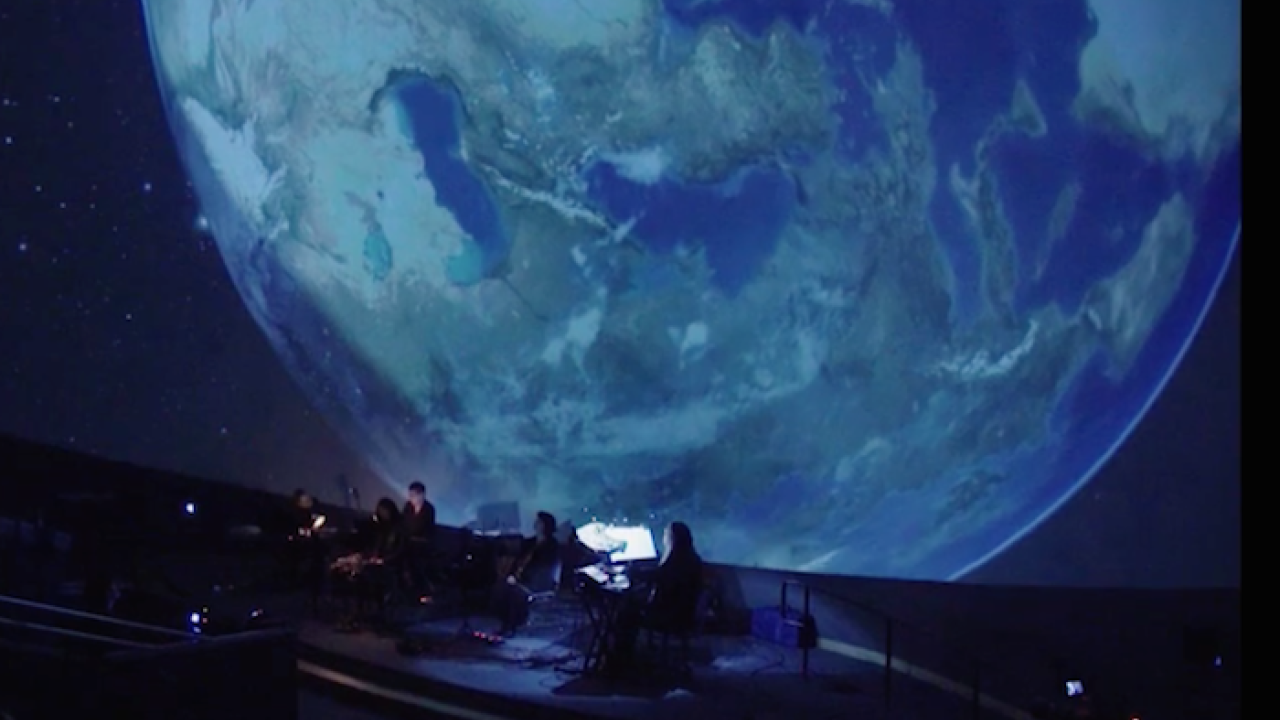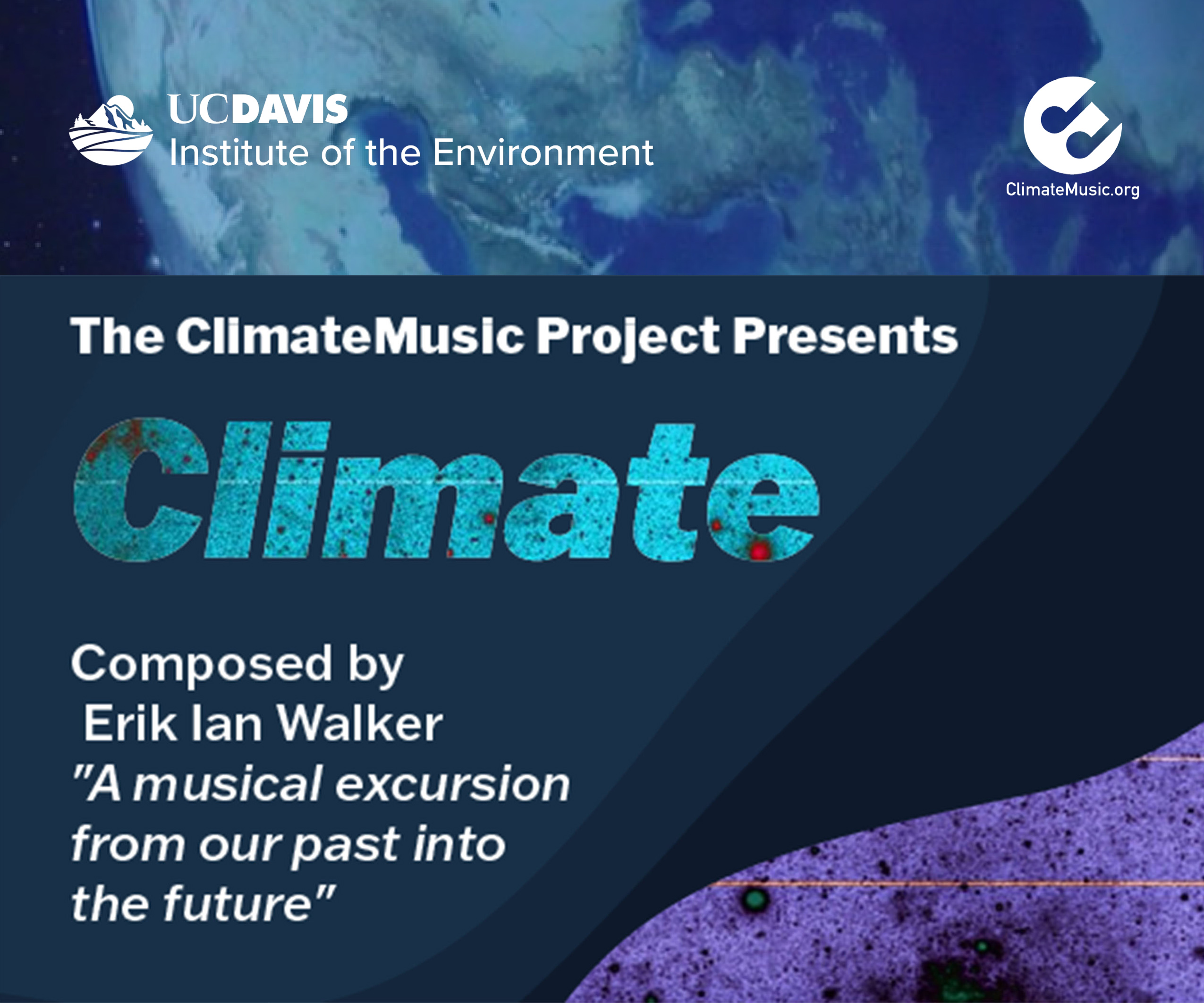
Event Date
Register Here!
Click here to view the event program.
On Dec. 4th we invite you to join us for the performance of CLIMATE, an original composition by Erik Ian Walker, in collaboration with The ClimateMusic Project. The ClimateMusic Project seeks to connect people to climate science and action through the emotional power of music. The composition tracks historical and projected variations in the climate system over 450 years, from 1800-2250.
The event will begin with brief introductions to The ClimateMusic Project by Executive Producer and Founder Stephan Crawford, to the climate science data (Professor Isabel Montañez, Dept. of Earth and Planetary Sciences, Director of the Institute of the Environment) and its sonification for artistic expression (Professor Samuel Nichols, Music Dept., UCD), as well as a 3-minute prelude video to the performance.
Following the 30-minute performance, there will be a 15-minute panel and audience discussion, moderated by Professor Ian Faloona, Dept. of Land, Air, and Water Resources, and including Erik Ian Walker, the composer of the musical piece. We look forward to hosting you at this timely and engaging performance.


The ClimateMusic Project educates, inspires, and motivates diverse audiences to engage actively on climate change by creating and performing science-guided music and visual experiences to viscerally convey the urgency of taking action. Through music, we make climate science personal and drive action.
Their mission is to generate conversations about the climate crisis and solutions, and to motivate action in the audience members. Solutions to climate change exist; the challenge is to create the individual and collective will to take action.
Climate was made by identifying four key indicators and assigning each of these a musical analog:
– Carbon dioxide concentration is reflected in the tempo of the composition, with increasing amounts of CO2 accumulating in the atmosphere causing the tempo to speed up.
– Near Earth atmospheric temperature is represented by pitch, where a rise in temperature translates to detuning, increased dissonance, harmonic complexity and/or a simple rise in pitch.
– Earth energy balance (the balance between incoming energy from the sun and outgoing heat from the Earth) changes are audible as distortion, ring modulation (a wobbly metallic sound), volume, and a general “unhealthy” unevenness of the atmospheric tone. The greater the imbalance, the greater the distortion and loss of natural harmonics.
– Ocean pH is represented by compositional form. As the pH in the ocean drops (becomes more acidic), the compositional form degrades.

